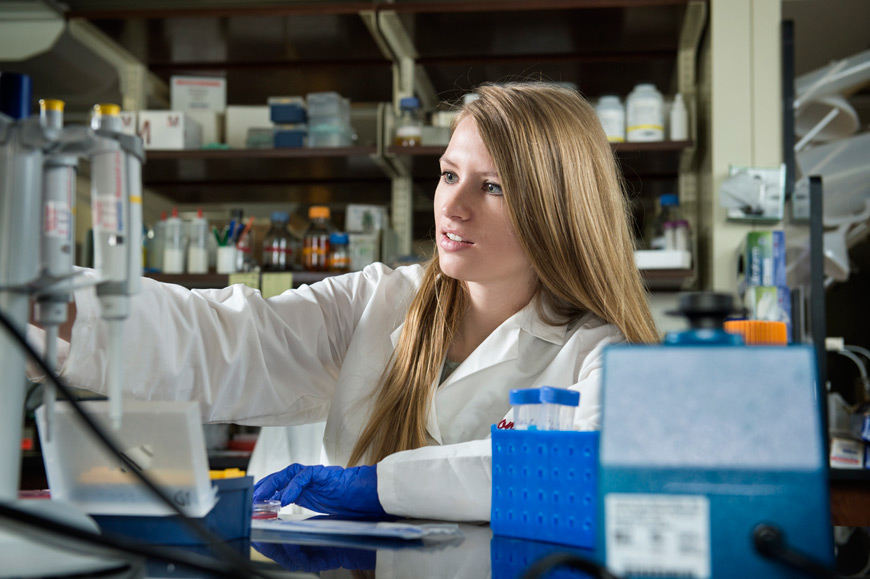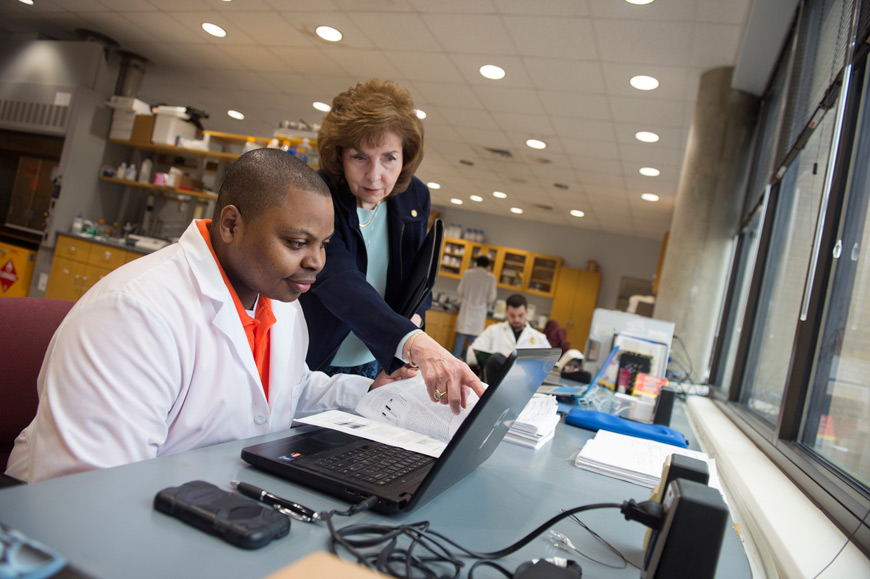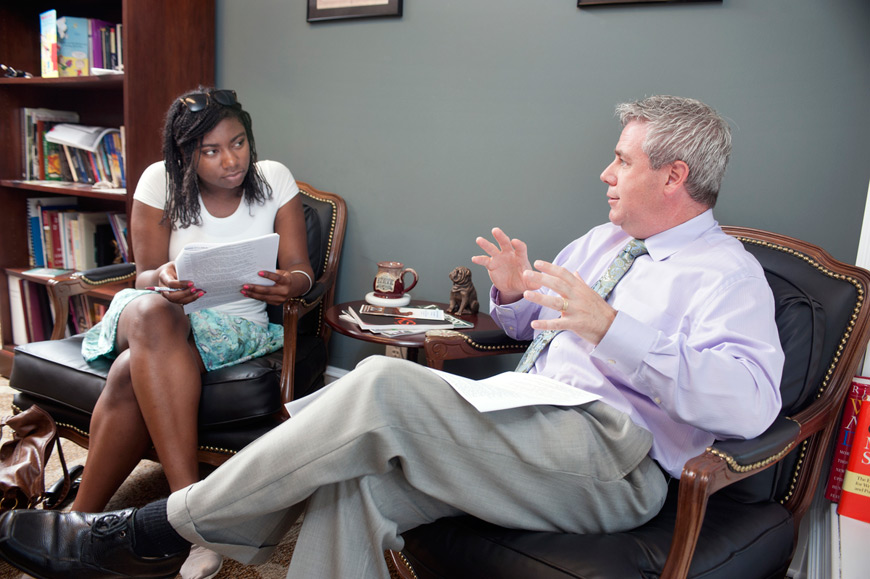MSU offers students world-class research experiences
Contact: Georgia Clarke

STARKVILLE, Miss.—As a freshman Mississippi State student, Sally White told an adviser she was interested in research. Soon after, she was introduced to professors and researchers who have guided her to success beyond what she ever imagined.
A senior microbiology and biological sciences major from Coffeeville, Alabama, White’s in-depth exploration of listeria monocytogenes has led her to present her findings at prestigious conferences in Washington, D.C., and Italy, and given her the opportunity to not only continue her research, but pursue a master’s degree following graduation this week. She attributes much of her success to Mississippi State.
“I don’t think I would have gotten this experience anywhere else,” said the Hal and Linda Parker Presidential Scholar, explaining how helpful the university’s professors have been.
White is one of many students with a compelling future that began in MSU’s student research programs.
Ranked as one of the nation’s top 100 research universities by the National Science Foundation, MSU also is the leading research university in the state. Providing hands-on research opportunities for students of all disciplines sets the university apart.
According to Seth Oppenheimer, director of undergraduate research and professor of mathematics, MSU has a responsibility to give students opportunities in fields where research is expected, and in those where it is not. Scientific research is plentiful, but groundbreaking exploration occurs in all fields at Mississippi State, he said.

“It’s not just working with test tubes or doing mathematical explorations or staring into a telescope or building a new engineering device. It also involves writing short stories or painting pictures or making sculptures or directing plays,” Oppenheimer said. “When I say research, I want that broadly construed to be research in creative activity,” he added.
Lien Van Geel, a senior English and foreign language/Latin double-major from Belgium, never doubted her ability to conduct research at MSU because of the helpfulness and reassurance from mentors and professors. She began researching Shakespeare’s references to poetry by Ovid while studying abroad at the University of Oxford in England.
When she returned to MSU, Van Geel continued her exploration and her success flourished, allowing her to present her material in the state of Washington and Knoxville, Tennessee, as well as being admitted for further study at the University of Oxford, the University of Cambridge and Columbia University.
“Everyone has good letters of recommendation, GRE scores and résumés, but the research makes you different,” she said, explaining how her creative discovery boosted her graduate school applications.
Van Geel, too, said MSU’s devotion to student research has been a significant factor in her success, and the faculty and staff helped make her goals reachable.
“We have a group of student-friendly faculty doing research, so I think that Mississippi State faculty are particularly interested in their students in a way that’s not as common as one might hope in universities across the United States,” Oppenheimer said.

Part of what makes MSU’s research programs successful is the working relationships between students and their professors. According to Jan Chambers, director of the Center for Environmental Health Sciences and professor in MSU’s College of Veterinary Medicine, mutual respect reigns most important in these relationships.
Chambers advises colleagues to “respect the individuality of students, including the strengths, weaknesses and career goals of each student.”
“Be proud of your students and be proud of the lab that you are in,” she added during a recent workshop to encourage faculty and student collaborations. “Be committed to students’ success, and students, do your part to be successful and establish future independence.”
In addition to dedicated professors, Mississippi State offers programs to support, promote and showcase student research.
The Judy and Bobby Shackouls Honors College-supported Honors Undergraduate Research Program allows students to take part in a 12-month research experience, each serving as a junior colleague for faculty and mentor-guided research programs. There also are major-specific funded research programs and awards for students in fields such as engineering, veterinary medicine, and agriculture and life sciences.
These programs allow students to delve into the exploration of specific topics pertaining to their field, and MSU’s symposia offer a chance to present their findings.
MSU holds major-specific seminars in fields such as history and biology, while also offering events encompassing all majors.
The widely attended Undergraduate Research Symposium invites all undergraduate students engaged in faculty-guided research to present their findings in poster, short talk or performance presentations.
“Research gives students a real sense of what their field is about,” Oppenheimer said. “It equips them to work independently, solve problems that are novel, and draw understanding that has not been broken down in a textbook.”
According to Chris Snyder, dean of MSU’s Shackouls Honors College and professor of European history, the symposia give students practice in presenting their material in front of crowds, and also provide a gateway to showcase these findings at regional and national conferences.
Snyder said student research at MSU is not just a résumé builder; it is an experience that allows students to explore the ins and outs of their chosen fields, and the opportunities to develop successful careers.
“Research changes the path for many of our students. Mentorship, study abroad and a variety of research experiences often pave the way for successful application to some of the top Ph.D. programs in the world,” Snyder said.
“When it’s time for graduation, it’s bittersweet because we have to say goodbye. I celebrate their success while they’re here, then move on to teach the next generation of students. But also I hope to visit our graduates and see them as they become academics themselves and young professionals with successful careers,” Snyder said. “It goes full circle.”
MSU is Mississippi’s leading university, available online at www.msstate.edu.